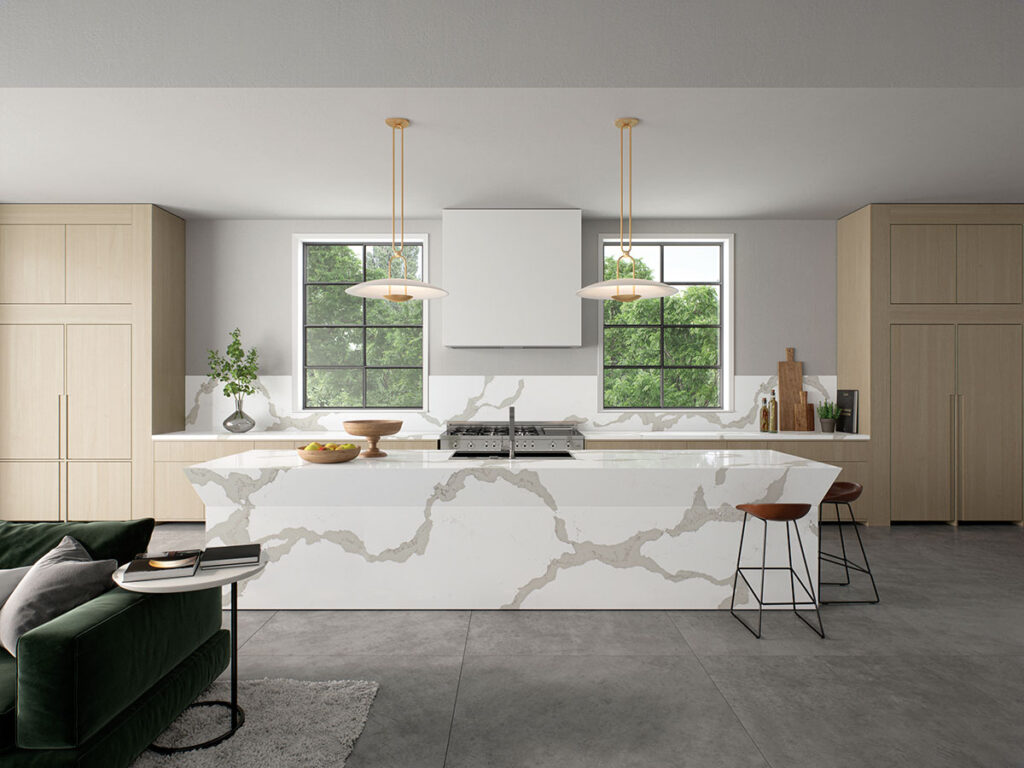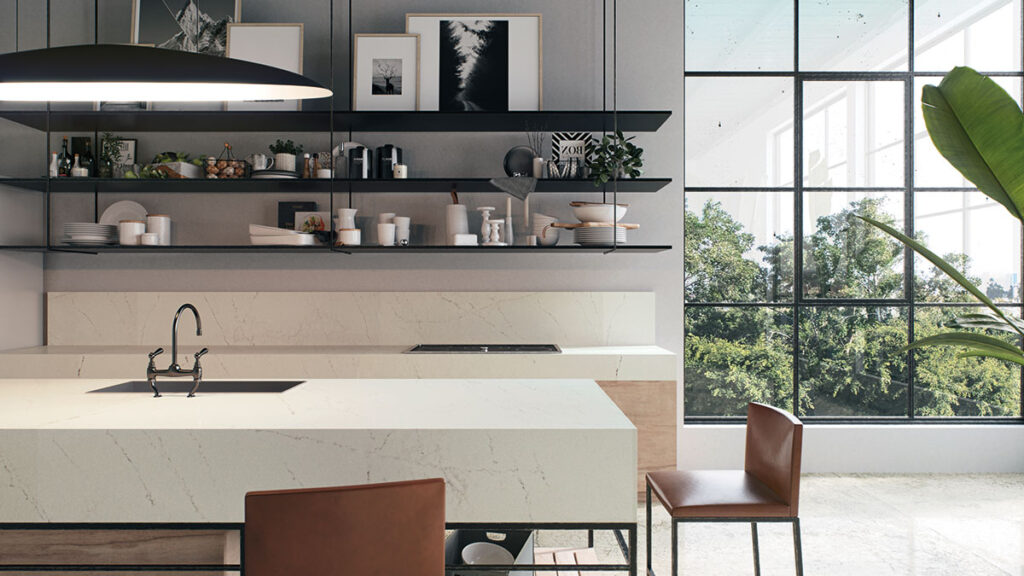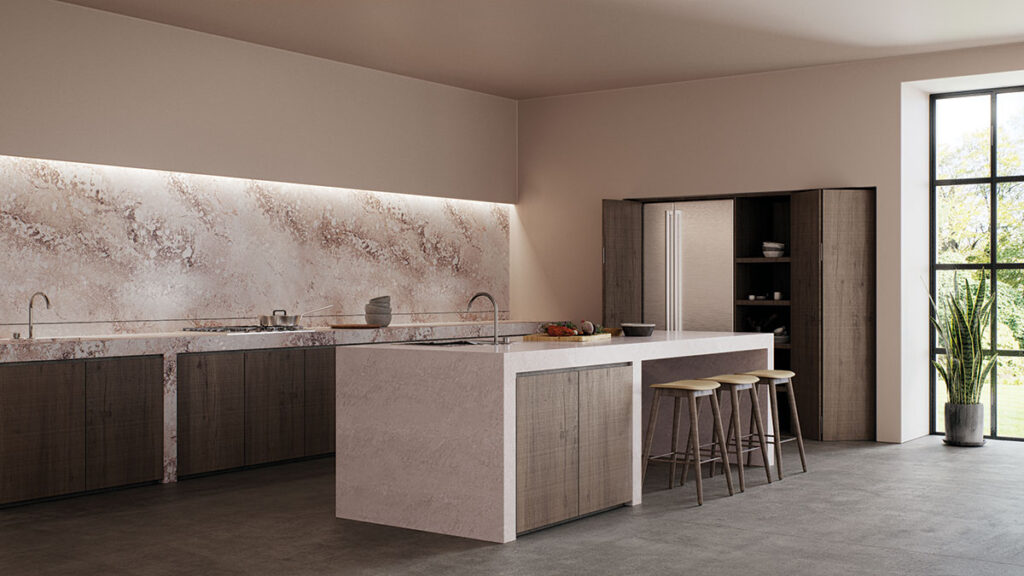Fabricants de comptoirs en quartz : Tout ce que vous devez savoir
3 min. de lecture

The popularity of quartz as a countertop material has grown in the recent past. And given its durability, low maintenance level, and ease of cleaning – among other benefits – the material is likely to become even more popular among kitchen designers and homeowners in the future.
In this article, we will talk about how quartz countertops are made, what to consider before making your quartz countertop purchase, and the differences among quartz countertop manufacturers. For more information, you can also check out Caesarstone’s Why Quartz page.
Quartz countertops are manufactured products. While they contain natural quartz, they also have binding resins. Most quartz manufacturers use approximately 90% quartz and 10% colour pigments and resins to manufacture the countertops.
The high degree of mineral content and the manufacturing process is what gives quartz its distinctive look and feel. During the manufacturing process, the hardest mineral (quartz) is retained while the softer impurities and minerals are eliminated. The result? A hard and durable countertop material.

Here are some of the key differences you can find among quartz countertop manufacturers.
This is the most obvious variance that may be noticeable among different quartz countertop manufacturers. While it may be a non-issue for most buyers, some quartz manufacturers may have a limited colour selection while others offer a wide variety. As such, it is important to shop around, especially when looking for a rare and unique quartz countertop colour. Caesarstone quartz comes in a virtually limitless range of unique and bold colours, such as 4043 Primordia or 5222 Adamina.
The timeline for ordering slabs will vary depending on the fabricator, but it is generally advised that homeowners place their orders a minimum of two weeks in advance. There are several steps involved in the fabrication process prior to the countertop being installed. This includes cutting, seams, cut-outs, edges, and more.
Different quartz manufacturers will have variations in slab designs. It is advisable to look at different slab designs, taking note of the size, streaks, the shape of minerals, and even striations. A person with a bigger kitchen who doesn’t want seams would need to look for a manufacturer that offers larger slab sizes.
Slab thickness may differ between quartz manufacturers. The thinness or thickness of quartz countertops has pros and cons that should not be ignored.
While quartz countertops are sturdy and strong, they can still break if used for the wrong purposes. As such, a person who is designing a kitchen for heavy use should get thicker slabs. While thinner quartz slabs may give a modern and sleek look, they may not withstand heavy use. The slab thickness should be a priority when choosing quartz slab manufacturers given that it affects reliability, functionality and longevity.
Caesarstone products come in a variety of slab sizes and thicknesses. For further information on where to find Caesarstone surfaces near you, visit https://www.caesarstone.ca/where-to-buy/.

As a pioneer of quartz since 1987, Caesarstone has been rated as the number one choice for engineered stone. Apart from the wide range of colours produced, Caesarstone’s premium quartz countertops are also available in a variety of styles, patterns, and finishes. To further explore Caesarstone’s range of products, visit https://www.caesarstone.ca/catalogue/.
{{ subtitle }}
{{ i.desc }}
{{ subtitle }}
{{ subtitle }}
Ce site Web utilise des cookies pour améliorer votre expérience, améliorer la navigation sur le site, analyser l'utilisation du site et nous aider dans nos efforts de marketing. En savoir plus dans notre politique d’utilisation des témoins et notre politique de confidentialité.